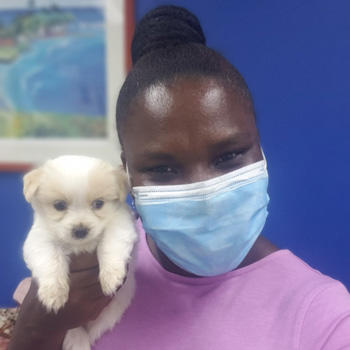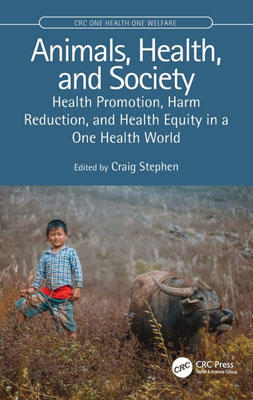Exactly what is a zoonotic disease? Zoonotic diseases are infectious diseases that are transmitted from animals to humans and are widespread throughout communities around the world.
According to U.S. Centers for Disease Control and Prevention (CDC), zoonoses are “infectious diseases — caused by bacteria, viruses, fungi or parasites that can be transmitted through direct physical contact, via air or water, or through an intermediate host like an insect. Often these zoonotic pathogens do not affect the animals in which they reside, but they can represent an enormous risk to humans who have no natural immunity to them.”
The World Health Organization (WHO) estimates that 61 percent of all human diseases are zoonotic in origin, while 75 percent of new diseases discovered in the last decade are zoonotic. The CDC highlights that “6 out of every 10 known infectious diseases in people can be spread from animals, and 3 out of every 4 new or emerging infectious diseases in people come from animals.”
Faced with these statistics, let’s explore how zoonotic diseases manifest themselves in our world…especially in our backyard, the Caribbean.
COMMON ZOONOTIC DISEASES
Common zoonotic diseases include rabies, Lyme disease, salmonella, and emerging coronaviruses like COVID-19. In the past decade, reported outbreaks of human illness have been linked to contact with pet hedgehogs, turtles, lizards, rats, mice, guinea pigs, puppies, and other animals. From rabies to salmonella, here’s a list of zoonotic diseases in the U.S.
What Does Zoonosis Look Like In The Caribbean?
Mosquitos are famous carriers of zoonotic diseases in the Americas and Caribbean. Mosquito-borne illnesses such as Chikungunya, Dengue, and Zika are spread by the bites of mosquitoes. Zoonotic disease symptoms include fever, vomiting, and headaches.
The fear of contracting one of these diseases does not scare hundreds of students from choosing to study on the islands or vacationers from unwinding in the tropics. Persons simply follow these preventive steps from the U.S. Centers for Disease Control (CDC) to avoid the threat of getting any disease spread by the mosquito.
Public Health officials in the region go a step further and lead health campaigns that keep individuals informed of the symptoms of mosquito-borne illnesses and the prevention and treatment options that are available.
Director for the One Health Center for Zoonoses and Tropical Veterinary Medicine, Dr. Souvik Ghosh shares that Ross Vet’s research around zoonotic diseases is focused on advancing zoonotic tracking and solutions for communities across the world.
“Zoonotic pathogens pose a serious threat to global health, economy, and society. In the Caribbean islands, humans and animals including marine and wildlife live in close proximity, and vectors of important Arboviruses have been identified, offering an ideal environment for the thriving and transmission of zoonotic pathogens. This is the reason our research center leads interdisciplinary, One-health-based research programs on various aspects of zoonotic diseases with the overall aim to improve animal and human health and create public awareness on zoonoses, especially in the Caribbean region.”
Consider the research that is being completed by Dr. Patrick Kelly, a lecturer at Ross Vet on the role of African Green Monkeys in the epidemiology of Dengue and Chikungunya on St Kitts.
This research will enable the team to determine the roles played by monkeys and their mosquitoes in chikungunya and dengue in people on the island and also in people who live in close association with other non-human primates elsewhere in the world, mainly in Africa, Asia, and South America. The study will also allow researchers to better understand the roles non-human primates play in chikungunya and dengue to better devise control strategies for the diseases.
Lyme Disease
Lyme disease is another zoonotic disease that is typical within the tropics. The disease is transmitted by a tick that can be found in grassy fields and wooded areas.
According to Medical News Today, the tick infects the person with the bacterium Borrelia burgdorferi (B. burgdorferi) and at first, it can appear as a rash. Symptoms can range from mild to severe, but it can be treated using antibiotics.
The threat of this disease is the reason why many persons within the Caribbean emphasize the importance of wearing long pants, especially if you intend to be in long grass for an extended period of time, and regularly check your body every time you enter your homes or the inside of a building if you have been outside.
Dressing appropriately and wearing protective clothing is one way to protect yourself. Beyond that, practicing good hygiene and undertaking vaccination where appropriate can minimize the risk of animal-borne diseases.
Just ask Dr. Aspinas Chapwanya, lecturer at Ross Vet, who handles cows and goats on campus as well as those in the St. Kitts community with students.
“Anyone working with or handling animals should take precautions to minimize the risk of infection. This is why when I’m teaching our students, I stress the importance of them being responsible for their hygiene and clothing to avoid diseases.”
Zoonotic Diseases In Veterinary Practice
Understanding zoonotic diseases and how they can manifest is an important part of prevention efforts. Perhaps the most important step in preventing zoonoses is caring for the health of animals.
While all animals can carry and transmit diseases to humans, the chances are low if the animal is healthy. It’s important to consult with your veterinarian on the best animal care option for your pet. Regular checkups, vaccinations, and deworming are effective solutions to keep animals healthy.
If you are a farmer, there are community programs led by the university to prevent the spread of disease transition to people. Consider the Feral Cat Project that is focused on controlling feral cats on-island and giving them the best care to reduce the spread of diseases.
Also, the community work of the Bovine Club – a club led by students of the university ensures that local farmers on the island have access to regular checks and medicine for the animals in their care.
“The number of animals and species available for the students to work with really allows for a great opportunity to participate in prophylactic disease control protocols, all while under the supervision of our caring faculty and staff. Classes like the Shelter Medicine rotation let the students get hands-on experience working with the community, performing basic veterinary services to prevent disease, and educating local pet owners on the risks to themselves and their animals. It is a great experience for the students as well as an important service for the animals and people of St. Kitts,” says Dr. Gosh.
Although the possibility of zoonotic diseases is an important factor to think about, the risk is low when you consider taking personal responsibility in keeping them healthy as well as yourself. The threat of diseases is always outweighed by the benefits of pet ownership when we take simple steps to minimize your risk.
YOUR CAREER PATH
Improve animal and human health through scientific discovery: You can be part of research that affects animal and human health on a global scale. We nurture academic exchange, where you will have access to distinguished faculty and research projects that aim to solve real-world problems. Interested in learning more about where a DVM can take you? Learn More.
Related resources:






